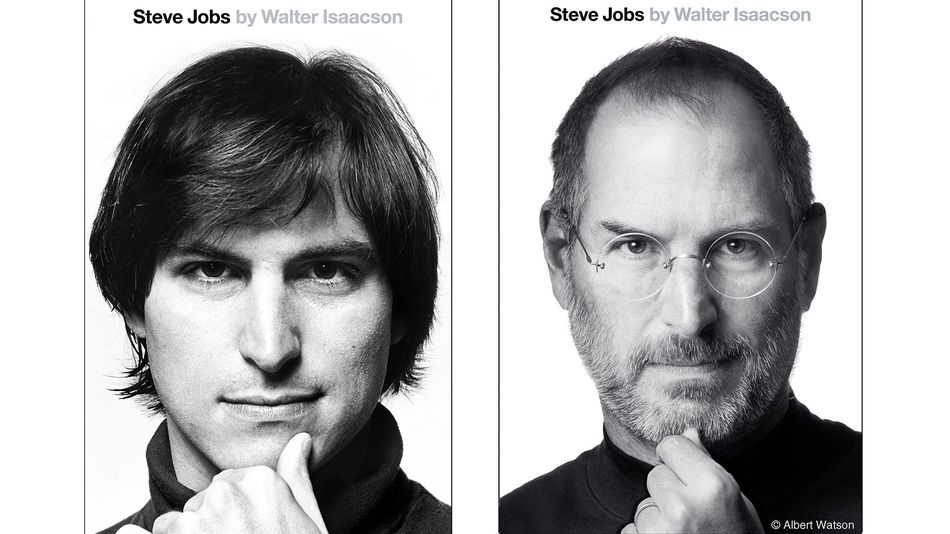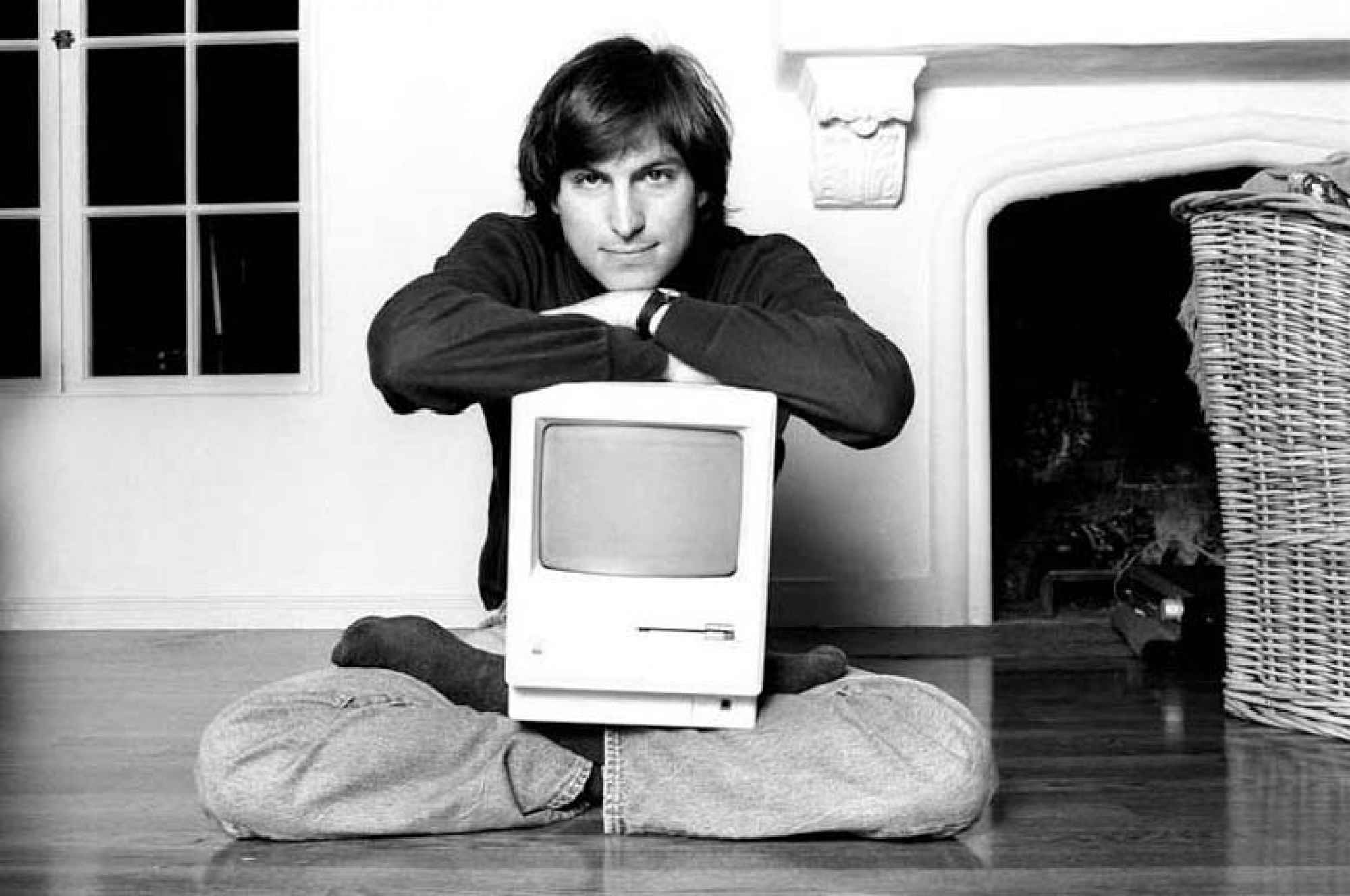Image from Mashable.com
Everybody knows Steve Jobs.
Icon, innovator, brilliant entrepreneur and creator of “insanely great” products, Jobs was the founder and CEO of Apple.
Creator of legendary products like the Macintosh computer, iPod, iTunes Store, iPhone and iPad, Jobs founded the Disney beating Pixar Animations (which was later sold to the behemoth), and opened the much lauded Apple Store.
Jobs’ death on 5 Oct 2011 at the age of 56 due to pancreatic cancer became one of the most talked about deaths in recent history.
Written as a biography yet offering lots of business and life lessons, Steve Jobs by Walter Isaacson is a masterful work by the former Chairman and CEO of CNN.
The only writer anointed to do the biography by Jobs himself, Isaacson paints an unadulterated portrait of who the visionary leader was from his early beginnings as an adopted kid to his last days stricken with cancer.
As I listened to hour after hour of the recording read in the clear and authoritative voice of Dylan Baker, several themes jumped out at me:
Steve Jobs’ Obssessive-Compulsive Lifestyle
Steve Jobs was intensely obsessed about almost every aspect of his life. This can be seen from his vegan fruitarian diet habits, passion for all things Zen-like with simple clean designs, down to his extreme perfectionism in seeing to the minute details of every product which rolled off the Apple production line.
Leaving nothing to chance, Jobs didn’t compromise in what be believed in, sometimes to the chagrin of those who loved and cared for him.
The Infamous Reality Distortion Field
Steve Jobs had an uncanny ability to influence people to do the impossible, through what is called his “reality distortion field”.
Through charm, wit, compulsion, charisma, and sheer force of personality, Jobs was able to make many of his associates achieve seemingly unrealistic deadlines and scale new heights of achievement.
A Major A**hole?
Steve Jobs was also an a**hole, especially in the way he treated others.
He didn’t mince his words and frequently used expletives in conveying his displeasure at a less than perfectly designed computer, smartphone or animated film (during his stint at Pixar).
Often, it was either his way or the highway.
The Contrarian Perfectionist
Steve Jobs’ insistence on perfection made him run contrary to many of his peers.
With a defiant and petulant attitude, he insisted on Apple owning the hardware, software and services platforms, providing a seamless end-to-end solution despite this being contrary to the gargantuan open-source, transparent and platform neutral movement in the IT industry.
In his own words, Jobs “screwed” players like Google and Microsoft whom he considered as being too promiscuous in allowing other manufacturers to use their software and applications.
Leadership and Management Lessons from Jobs
Beyond his manic emotions and quirky character traits, Jobs provided a good study for managers and leaders alike.
In a recent article on Harvard Business Review, Isaacson shared what he considered to be the real leadership lessons of Steve Jobs. These are worth nothing, and are summarised as follows:
#1 Focus on Your Core
Jobs’ ability to whittle down a large array of products into four SKUs which sat squarely in the quadrants of “Consumer”, “Pro”, “Desktop” and “Portable” is an epitome to how razor sharp he was in focusing on the core.
#2 Simplify
This Zen-like ability stemmed from Jobs’ beliefs in Eastern mysticism and spiritism, with Apple’s brochure declaring that “simplicity is the ultimate sophistication”.
#3 Take Responsibility End to End
Here, Jobs made it his lifelong mission to take responsibility for the user experience. From the moment they purchased an Apple product at the store, opened the beautiful packaging, powered up and plugged in the device and activated it.
#4 When Behind, Leapfrog
Steve Jobs never liked to play catch up.
Instead of making a better, faster or cheaper device to burn CDs or DVDs, he built an integrated system of iTunes store, iTunes and iPods. This revolutionised the music industry.
#5 Put Products Before Profits
In the biography, Jobs wistfully regretted that he allowed a previous CEO John Sculley to milk Apple’s profits without injecting fresh innovation. When Jobs returned after being ousted, he made it his priority to shine the spotlight back on product innovation.
#6 Don’t Be a Slave to Focus Groups
It has been said that Jobs doesn’t believe in any market research, quoting the famous saying from Henry Ford: “If I’d asked customers what they wanted, they would have told me, ‘A faster horse!’”
#7 Bend Reality
I’ve highlighted this point earlier when I described Jobs’ reality distortion field.
#8 Impute
This lesson was one which Jobs picked up from Mark Markkula. It directed the need for subtle semiotic features like the recessed handle in iMacs which conveyed a playful and portable sensibility rather than real utility.
Similarly, when you “open the box of an iPhone or iPad, we want that tactile experience to set the tone for how you perceive the product,” Jobs said.
#9 Push for Perfection
I think this lesson was quite clearly conveyed in Jobs’ endless need to ensure that everything falls into place.
#10 Tolerate only ‘A’ Players
Steve Jobs only wanted top grade players and would not tolerate having any “bozos” on the team. This tough love meant that you either win over his affection or was fired due to incompetence – there was no two ways about it.
#11 Engage Face-to-Face
Despite running one of the world’s most valuable technology company, Jobs believed in physically meeting people. He also spent time talking to them, and shunned the interactions on online platforms like email or an “iChat”.
In fact, one of his most famous management methods involved taking a walk around his home with his executives and having a walking meeting with them.
#12 Know Both the Big Picture and Details
This ability to zoom in and zoom out made Jobs attentive to both his grand dream as well as the nuts and screws that held each product together. His amazing ability to zoom in and zoom out could be seen in how he launched each product with a stunning presentation.
#13 Combine the Humanities with the Sciences
With a poetic and artistic soul and a technologist’s fascination with science, Jobs was atypical in his field. His ability to merge both disciplines made Apple succeed beyond what its competitors were capable of doing.
#14 Stay Hungry, Stay Foolish
This famous saying that Jobs appropriated reflected his own mantra as a counter-culture rebel with an anti-authoritarian streak. Unlike many of his peers, Jobs did not subscribe to the status quo, believing that he was still a hacker and a hippie at heart even when Apple was a multi-billion dollar company.
Let me end by paying homage to Steve Jobs’ marketing genius as seen from the text which he wrote for a “Think Different” ad:
“Here’s to the crazy ones. The misfits. The rebels. The troublemakers. The round pegs in the square holes. While some see them as the crazy ones, we see genius. Because the people who are crazy enough to think they can change the world are the ones who do.”



I have not finished reading the book, so I reseve my comments for the parts I’ve read.
Steve Jobs is such a fascinating read, did you ever wonder why his book is not flying off the shelves?
Could it be partly because of his reputation for defying convention, stealing competitors’ ideas, intolerance for non-A listers, not sharing credit where it’s due and his infamous reality distortion field?
Several of my acquaintances have refused to read the book because they don’t like what they hear about him.
Still, whatever we think of Steve Jobs the man, he made Apple a cool household name.
BTW – are we to believe that Walter Isaacson got away with getting Steve Jobs to agree that he, Steve the control maniac, was okay not previewing the content before it went to print?
I can’t wait to finish the book. Signing off with my iPad now.
Thanks for your comment Kai!
I’m not sure why Steve Jobs isn’t as popular in Singapore as in the US. According to Amazon.com (http://techcrunch.com/2011/12/12/steve-jobs-biography-is-amazons-best-selling-book-of-the-year/), Walter Isaacson’s biography of Jobs was the bestselling book last year.
My hunch is that we don’t really have as much of a reading culture here as they do in the US.
Jobs isn’t “sugar, spice and everything nice” but he sure is effective at what he does. His eccentric and unconventional approach to management may have worked only because of his sheer might of foresight, intuition, and understanding of the market. Other lesser mortals trying to apply his ruthless style may not have succeeded as much.
Walter Isaacson isn’t just a typical biographical author in my view. He was the former Chairman and CEO of CNN, and wielded significant influence on media. I suppose Jobs must have respected that guy to give him carte blanche in his biography.
Persevere and I’m sure you’ll be proud of yourself when you complete the book. When I’ve finished the audio book (which was 24 hours 30 minutes in total or so), I felt a mixture of sadness and awe at the end of this epic tale. Few books have impacted me as much as this one has, and I am a very prolific reader of management and business tomes!
One of the best books ever, Steve Jobs by Walter Isaacson brings Steve Jobs back to life.
This book is more than just a biography. It’s like having Mr. Jobs sitting next to you and narrating his life story to you. It’s one of the most vividly written book of all time, indeed.
It is almost a 700 pages book and gives you everything you needed. It is worth buying if you want to UTILIZE your money. Money is only well-utilized if the thing bought with it is well-utilized, isn’t it?
Its really informative, some facts and other points given here are quite considerable and to the point as well, would be better to look for more of these kind for efficient results.
Construction Service Management Software
hi..Im student from Informatics engineering, this article is very informative, thanks for sharing 🙂
I am a big fan of Steve Jobs.
He is my idol. Thanks for sharing the post.
I am a great fan of Steve Jobs and I consider him the best and only one.